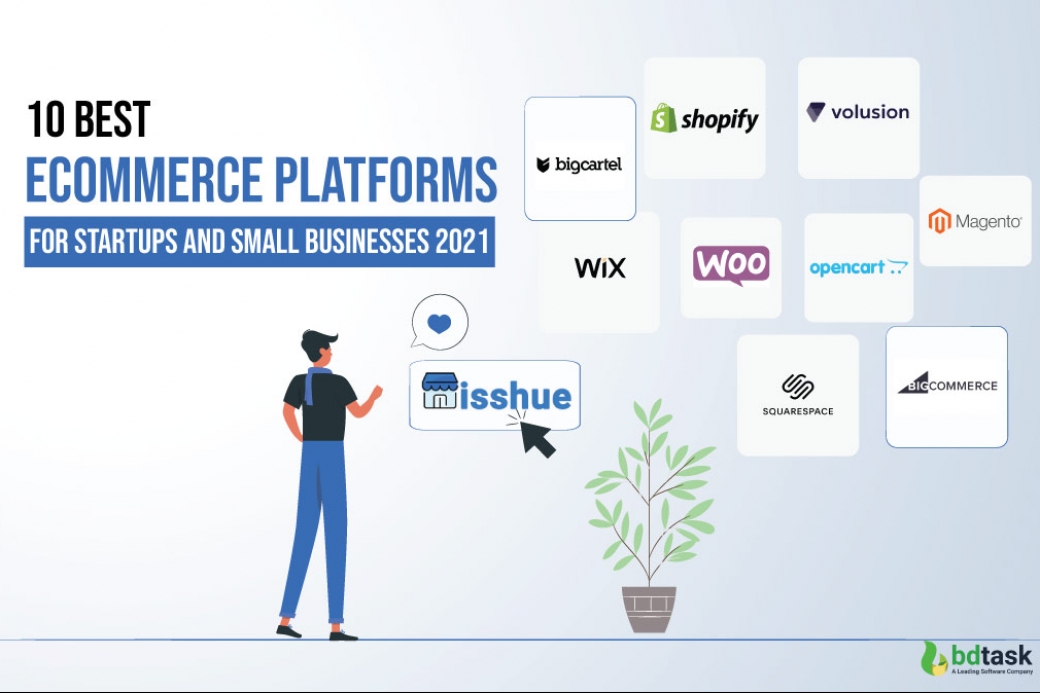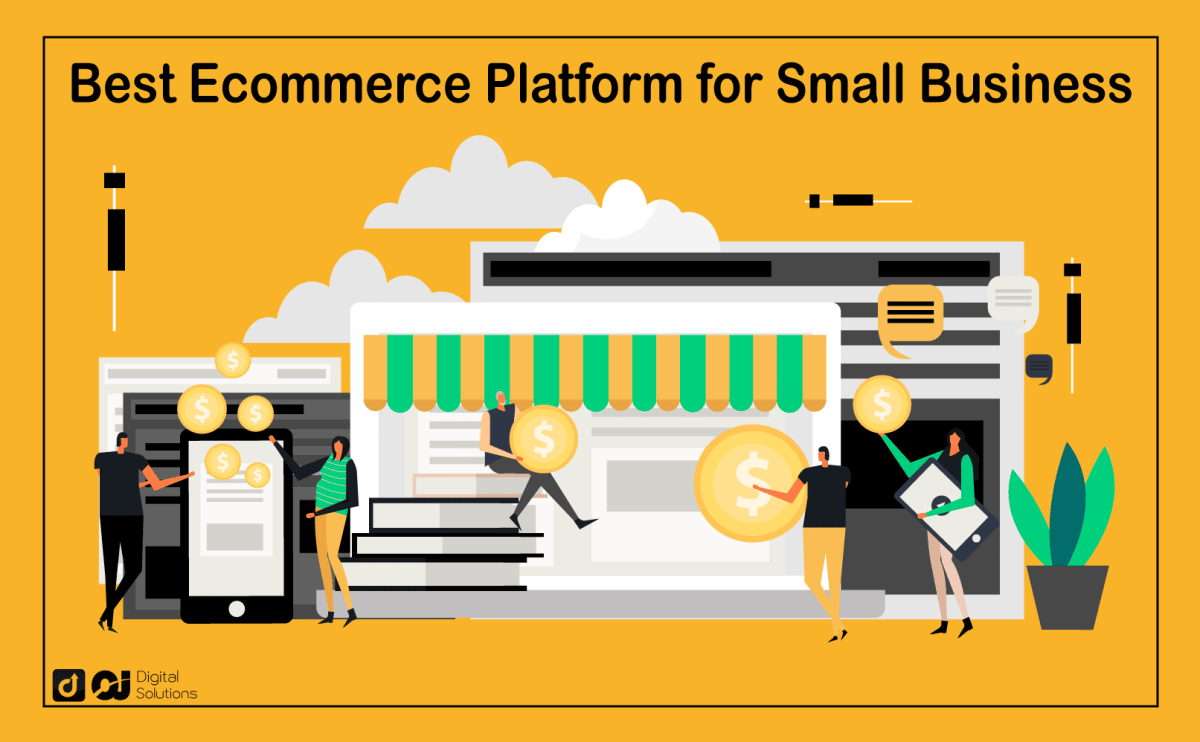Exploring the Best eCommerce Platforms for Small Businesses in 2025
Diving into the realm of Best eCommerce platforms for small businesses in 2025, this introduction sets the stage for an insightful exploration of the topic.
The following paragraphs will delve into the history, key features, user-friendly interface, customization options, integration with third-party tools, and scalability of eCommerce platforms tailored for small businesses in 2025.
Overview of eCommerce platforms
eCommerce platforms have played a crucial role in enabling small businesses to reach a global audience and increase their sales. These platforms provide a digital infrastructure for businesses to showcase and sell their products or services online.
Small businesses have been utilizing eCommerce platforms since the early 2000s, with the emergence of platforms like Shopify, WooCommerce, and Magento. These platforms offered easy-to-use tools and templates that allowed businesses to set up online stores without the need for extensive technical knowledge.
Evolution of eCommerce platforms
Over the years, eCommerce platforms have evolved to offer more advanced features and customization options. The integration of mobile responsiveness, social media integrations, and advanced analytics tools has made it easier for small businesses to create a seamless online shopping experience for customers.
- Introduction of AI and machine learning capabilities for personalized product recommendations.
- Integration of chatbots for customer support and engagement.
- Enhanced security measures to protect customer data and transactions.
Significance of choosing the right platform for small businesses
Choosing the right eCommerce platform is crucial for small businesses as it can impact their online presence, sales, and overall success. The right platform should align with the business's goals, budget, and technical requirements to ensure a smooth and efficient online selling experience.
- Scalability to accommodate business growth and increased traffic.
- User-friendly interface for easy management of products, orders, and customer data.
- Integration with third-party tools and services for marketing, analytics, and shipping.
Key features to consider in 2025

In 2025, small businesses looking for an eCommerce platform need to consider several key features to ensure their online success. These features can make a significant difference in the efficiency, effectiveness, and overall performance of their online store.
Mobile Responsiveness
Having a mobile-responsive eCommerce platform is crucial in 2025, as more and more consumers are shopping on their mobile devices. The platform should provide a seamless shopping experience across various screen sizes and devices, ensuring that customers can easily browse, select, and purchase products on their smartphones or tablets.
Omnichannel Capabilities
Omnichannel capabilities are essential for small businesses looking to reach customers through multiple channels seamlessly. An eCommerce platform with omnichannel capabilities allows businesses to integrate their online store with various sales channels, such as social media, marketplaces, and physical stores.
This integration enables a consistent shopping experience for customers, regardless of the channel they choose to engage with the business.
Comparison of Popular eCommerce Platforms
When comparing popular eCommerce platforms available in 2025, businesses should look for platforms that offer a wide range of features to meet their specific needs. Some of the key functionalities to consider include customizable storefronts, robust inventory management, secure payment gateways, efficient order processing, and comprehensive analytics and reporting tools.
Platforms like Shopify, WooCommerce, BigCommerce, Magento, and Squarespace are among the popular choices for small businesses due to their user-friendly interfaces and scalability.
Importance of Mobile Responsiveness and Omnichannel Capabilities
The importance of mobile responsiveness and omnichannel capabilities cannot be overstated in 2025. With the increasing number of consumers shopping online, businesses need to ensure that their eCommerce platform is accessible and user-friendly across all devices. Additionally, omnichannel capabilities allow businesses to expand their reach and engage with customers on multiple channels, ultimately driving sales and fostering customer loyalty.
User-friendly interface and customization options

Having a user-friendly interface and customization options are crucial aspects of eCommerce platforms for small businesses. These features not only make it easier for businesses to manage their online stores but also enhance the overall shopping experience for customers.
Customizable Features for Small Businesses
- Branding Options: Small businesses can customize their online store to reflect their brand identity through logo placement, color schemes, and fonts.
- Product Catalog Customization: Businesses can organize their products into categories, create product variations, and showcase featured products to attract customers.
- Flexible Payment Options: Offering various payment methods such as credit card, PayPal, and mobile wallets can cater to different customer preferences.
- Personalized Recommendations: Utilizing algorithms to suggest products based on customer browsing history can enhance the shopping experience and increase sales.
Enhancing Customer Shopping Experience through Customization
- Improved Navigation: A user-friendly interface with easy navigation helps customers find products quickly and efficiently, leading to a seamless shopping experience.
- Personalization: Customizing product recommendations, promotions, and messages based on customer behavior can create a personalized shopping journey that resonates with customers.
- Responsive Design: Ensuring that the eCommerce platform is optimized for various devices and screen sizes enables customers to shop conveniently from desktops, tablets, and smartphones.
- Feedback Mechanism: Implementing customization options that allow customers to provide feedback, reviews, and ratings can help businesses improve their products and services based on customer input.
Integration with third-party tools and scalability
Integrating third-party tools with eCommerce platforms can provide small businesses with a wide range of benefits, such as enhanced functionality, improved customer experience, and increased efficiency. These tools can include payment gateways, inventory management systems, marketing automation software, and more.
By seamlessly integrating these tools with their eCommerce platform, small businesses can streamline their operations, automate processes, and gain valuable insights into their customers and sales data.
Scalability options offered by different platforms
Different eCommerce platforms offer varying levels of scalability options for small businesses looking to grow their online presence. Some platforms provide flexible pricing plans that allow businesses to easily upgrade their features and capabilities as they expand. Others offer built-in scalability features, such as the ability to handle high volumes of traffic, support multiple languages and currencies, and integrate with enterprise-level tools for advanced functionality.
- Platform A: This platform offers tiered pricing plans that allow small businesses to scale up their operations without breaking the bank. It also provides integrations with popular third-party tools to enhance functionality.
- Platform B: With built-in scalability features, Platform B can accommodate the growth of small businesses by supporting increased traffic, expanding product catalogs, and integrating with enterprise tools for advanced analytics.
Examples of successful integrations and scalability strategies for growth
Many small businesses have successfully leveraged third-party integrations and scalability options to fuel their growth and reach new customers. For example, a clothing retailer integrated a social media marketing tool with their eCommerce platform to drive traffic and sales from Instagram and Facebook.
Another example is a subscription box service that scaled their operations by integrating a fulfillment center management system to handle increased order volumes efficiently.
- Integration Example: Company X integrated a customer relationship management (CRM) tool with their eCommerce platform to personalize marketing campaigns and improve customer retention rates.
- Scalability Strategy: Company Y utilized a cloud-based eCommerce platform that offered unlimited product listings and bandwidth, allowing them to expand their product offerings and handle surges in website traffic during peak seasons.
Conclusive Thoughts

In conclusion, the landscape of eCommerce platforms for small businesses in 2025 offers a myriad of opportunities and possibilities for growth and success. As technology continues to advance, choosing the right platform becomes crucial for businesses aiming to thrive in the digital marketplace.
Answers to Common Questions
What are the key features small businesses should consider in 2025?
Small businesses should prioritize features like mobile responsiveness, omnichannel capabilities, secure payment gateways, customizable templates, and tools to enhance their online presence and customer experience.
How important is customization in eCommerce platforms for small businesses?
Customization plays a vital role in catering to the unique needs of small businesses, allowing them to create a personalized shopping experience for customers and stand out in a competitive market.
Can you provide examples of successful integrations with third-party tools?
Successful integrations include connecting with social media platforms for marketing, integrating with inventory management systems for streamlined operations, and linking with analytics tools for data-driven insights.

